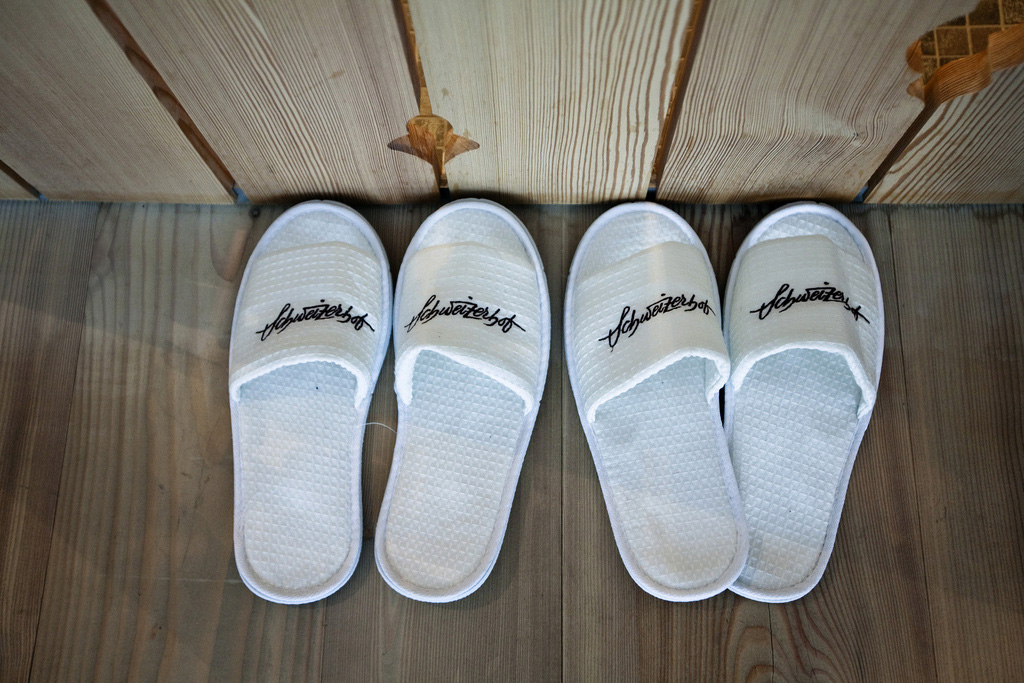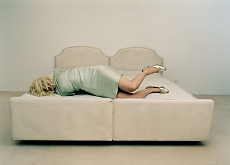Qatar bankrolls revamped five-star hotel

The historical Hotel Schweizerhof in Bern has recently re-opened thanks to a property firm whose money comes from Qatar’s sovereign wealth fund.
But it remains to be seen whether the Swiss capital, which is better known as a political than a financial location, is big enough for two five-star hotels – the Bellevue Palace being the other.
On April 16 the ribbon was cut on the lobby and bar, then the restaurant, and over the coming weeks the hotel’s 99 rooms and suites will be opened for business.
The Schweizerhof, which is located right next to the city’s main train station, had been one of Bern’s top hotels since the 18th century until it ran into financial difficulties in the 1990s and shut its doors six years ago. Whether it would ever re-open remained uncertain until 2009, when Qatari investors stepped in.
The new operating company is QDHP Swiss Management, a property investment fund controlled by the Qatari Diar Real Estate Investment Company.
This in turn is controlled by the Qatar Investment Authority (QIA), Qatar’s Doha-based sovereign wealth fund, which is estimated to hold assets in excess of $60 billion (SFr52.7 billion). The QIA’s chief executive and chairman is the Qatari prime minister, Sheik Hamad bin Jassem bin Jabr Al Thani.
QDHP Swiss Management was founded in Zug by Bruno Schöpfer, former CEO of Mövenpick Hotels.
The Schweizerhof is not the only hotel in QDHP Swiss Management’s portfolio. Schöpfer has more than SFr500 million to play with and is busy renovating the hotel in the Bürgenstock Resort overlooking Lucerne, and the Royal-Savoy hotel in Lausanne.
More than SFr45 million was spent on the Schweizerhof.
Quality comes first
According to Heinz Wehrle, a former hotelier and now hotel consultant, the Schweizerhof formula of Qatari money plus Swiss operating company isn’t typical but it is in the long term stable.
“Normally interest is shown in a hotel by a chain with a well-known name, and financing is then found relatively quickly,” he told swissinfo.ch.
Wehrle explained how in the case of the Schweizerhof, however, no chain had shown interest in Bern, considered a less significant location, even though some chains have no properties in Switzerland.
“The Schweizerhof is certainly a good investment, but it will no longer be run as personally as it was under a family.”
Private hoteliers are now out, general managers are in. Michael Thomann, new general manager of the Schweizerhof, started at QDHP Swiss Management in September and, like Schöpfer, is a former Mövenpick man.
He began his career at Swiss chocolate and confectionery maker Sprüngli, where he learnt that quality trumps everything else.
Later he worked at the five-star Dolder Grand in Zurich and ended up taking over the Waldhotel in Davos, immortalised in Thomas Mann’s novel, The Magic Mountain.
“I had my first experiences of monument conservation in the listed Waldhotel,” he told swissinfo.ch with a smile. “But in Unesco-protected Bern the constraints are much greater. It’s a good thing our investors are patient.”
Squeezed by the banks
The patience of many medium-sized family-run hotels ran out in the 1990s, however. That was also when the problems peaked for the Gauer family, which had run the Schweizerhof since the Second World War until they sold up in 2000.
Family members continue to earn a living in hotels, but not at the Schweizerhof. Jean-Jacques Gauer has run the Palace in Lucerne since 1996 and his sister, Marianne Gauer-Zurbrügg, has made an international name for herself as a hotel architect. Her husband, Hans Zurbrügg, runs the Innere Enge hotel in Bern.
As with many small and medium-sized businesses in other sectors, disagreements arose at the Schweizerhof when it came to discussing succession and inheritance.
“In addition, big banks – in our case UBS [at the time the Union Bank of Switzerland], after it merged with the Swiss Bank Corporation only wanted to provide credit under certain conditions,” Jean-Jacques Gauer told swissinfo.ch.
“Under Basel II [recommendations made in 2004 on banking laws and regulations], hotels were put in a new category with the result that interest rates on loans suddenly jumped from four per cent to ten or 11 per cent.”
This, he said, made doing business impossible and shareholders or owners often parted from hotels.
“Not all hotels were affected,” he added. “Those with a healthy capital base or which had already sorted out their inheritance could survive.”
“Problem child”
The Schweizerhof, which had fallen into disrepair and needed renovation work, was for years a problem child for Bernese authorities.
After its sale in 2000, it became an object of speculation. The question was also raised whether there was enough room in Bern’s old town, a Unesco heritage site known more as a political than economic centre, for two five-star hotels.
Bern’s other five-star hotel, the Bellevue Palace, is part of the Victoria Jungfrau Collection, which also owns five-star hotels in Interlaken, Lucerne and Zurich.
With its 126 rooms and eight conference halls, it is located next to parliament and the Swiss National Bank and serves more as a municipal house for national politics than as a source of profit.
Let the five-star battle begin!
In 2010 room prices rose for the first time in three years, according to hotel reservation site hotels.com.
With an average price per night of €140 (SFr180) Switzerland was second on the list, behind Brazil (€145) and ahead of Israel (€138).
Prices in Ireland, Spain and Iceland collapsed because of the various crises in those countries, but the cost of staying a night in Abu Dhabi also fell by 17%.
Hotels.com said the prices for 2010 were similar to those of 2004.
Bern’s two five-star hotels – the Schweizerhof and the Bellevue Palace – are both eye-wateringly expensive for the average tourist, although francs go slightly further at the Bellevue. Rooms at the Bellevue start at SFr389/510 for a standard single/double and SFr450/550 at the Schweizerhof.
The Federal Statistics Office has been keeping accommodation statistics for 75 years. Here are some of the main changes:
The number of hotels fell by 29 per cent from 7,756 to 5,533. But the number of beds available rose by 35%.
The number of overnight stays rose 2.5 times from around 14.3 million in 1934 to 35.6 million in 2009.
However, people are staying in hotels for less time: an average 2.3 nights (2009) compared with 4.2 nights (1934).
The origin of guests has flipped around: in 1934, 57% were Swiss and 43% foreigners, and in 2009 43% were Swiss, 57% were foreigners.
(Adapted from German by Thomas Stephens)

In compliance with the JTI standards
More: SWI swissinfo.ch certified by the Journalism Trust Initiative














You can find an overview of ongoing debates with our journalists here . Please join us!
If you want to start a conversation about a topic raised in this article or want to report factual errors, email us at english@swissinfo.ch.